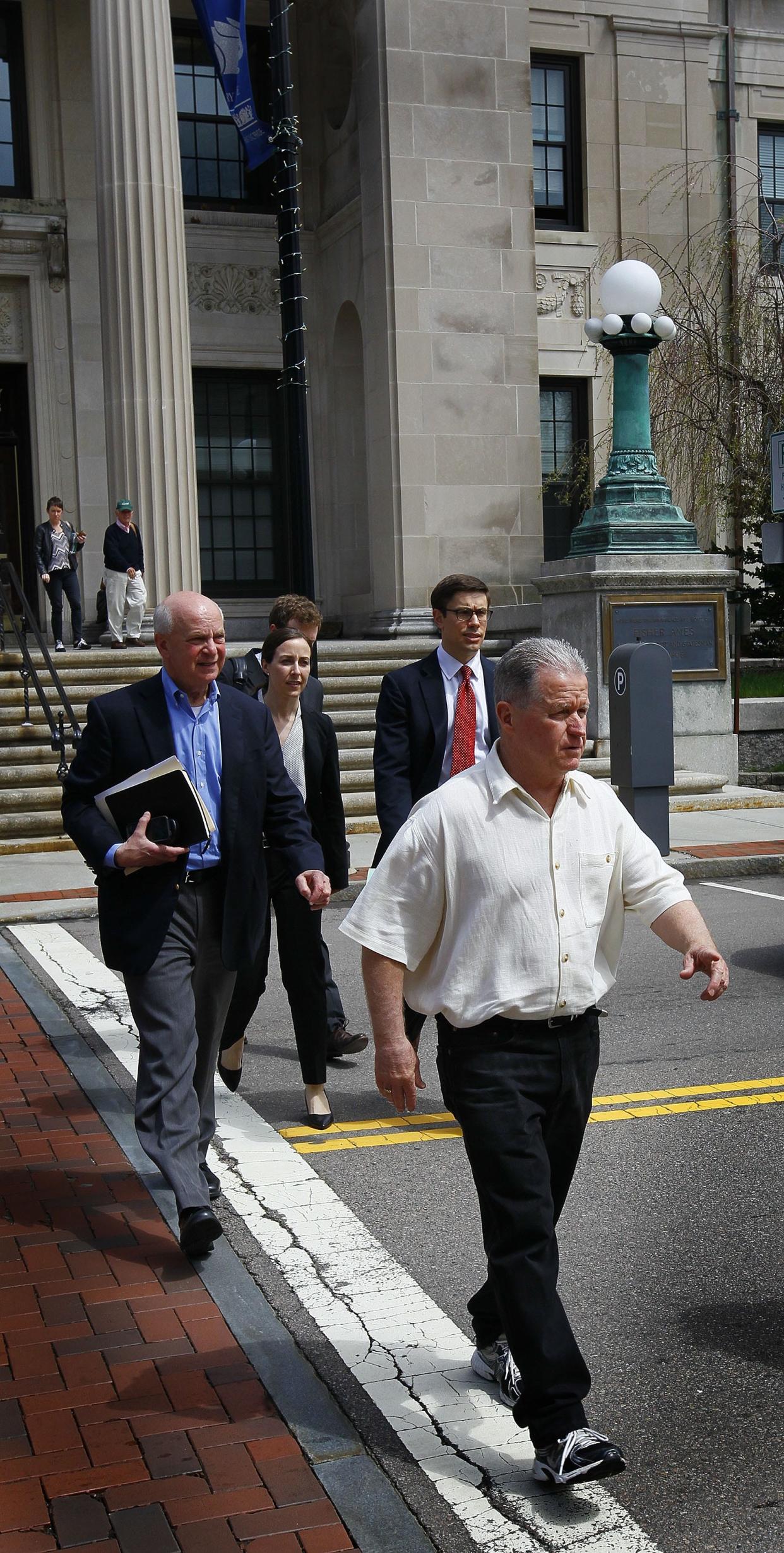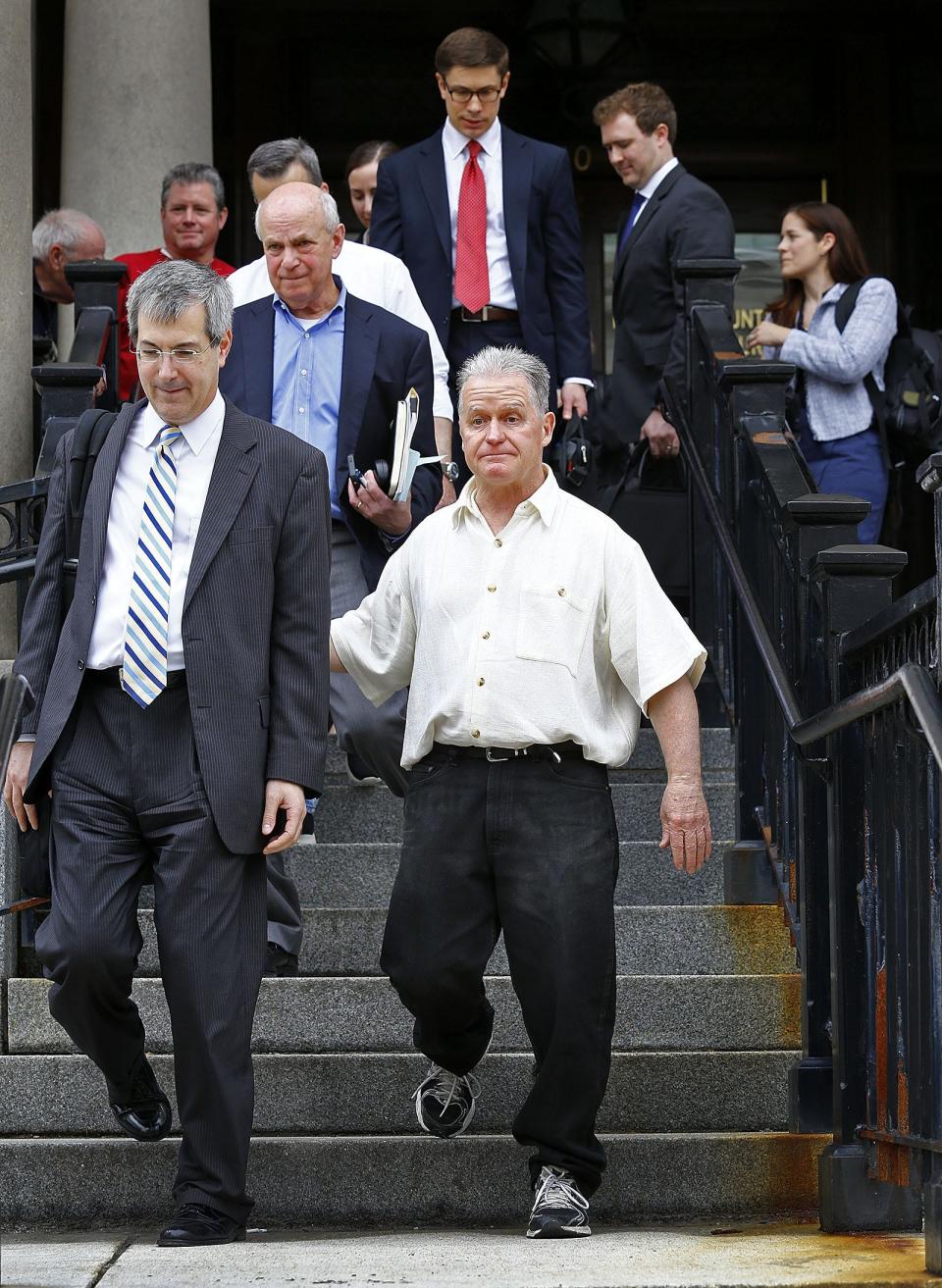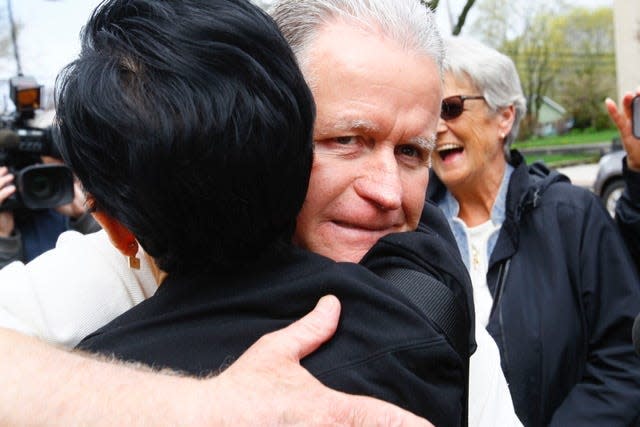Man who spent 36 years in prison awarded $33 million after proving innocence in Braintree murder

BOSTON – A jury awarded $33 million Tuesday to a man who spent nearly 36 years in prison for a 1980 Braintree murder he says he did not commit, claiming Braintree police ignored evidence of his innocence.
Fred Weichel, now 70, was convicted in 1981 of the murder of Robert LaMonica, 25, who was gunned down on Commercial Street in Braintree shortly after midnight while returning from work on May 31, 1980. Weichel was 28 when he was arrested.
He was released in 2017 after a Braintree police report that was never handed over surfaced. It suggested someone else could have committed the crime.
Weichel sued the state, whose erroneous conviction law requires claimants to prove to a jury that they are innocent by showing "clear and convincing" evidence. Weichel said he had been threatened by former South Boston mob boss James "Whitey" Bulger to stay quiet about the murder of LaMonica. In the civil trial, the state tried to paint Weichel as involved in the murder.
More: Man imprisoned for 36 years sues Braintree for misconduct
Despite the $33 million verdict, under Massachusetts law he is eligible to receive only up to $1 million.
The verdict followed testimony by Kevin Weeks, Bulger's former right-hand man. Weeks, who has lived in Quincy, was friendly with both Weichel and LaMonica. Weeks testified that "Jim Bulger didn't really care for Freddy."
Weeks testified that, on the night of the murder, he saw Weichel in Triple O's, the South Boston bar that was Bulger's hangout and where Weeks worked as a bouncer.

Weeks talked about a conversation he had with Weichel a few days after LaMonica was killed.
"What did Mr. Weichel say to you during that conversation?" he was asked on the stand.
"'It wasn't me,'" Weeks replied. "And I knew it wasn't him, because he was in the bar."
Weichel was arrested two months after LaMonica’s death based on the description of a teenager who said he briefly saw a man running toward a car after the shots were fired.
Police used the description of the teen to form a composite sketch, which was printed in The Patriot Ledger. The teen then picked Weichel out of a photo array, leading to charges.
Quincy: Without extra $23 million for new police station, 'we don't have a project'
In 2017, Judge Raymond P. Veary Jr. ruled that Weichel’s case be overturned based on a document that indicated that another man could have committed the murder.
The document, dated June 9, 1980, was a memorandum written by James F. Leahy, a Braintree police detective who was working on the case at the time.
It was discovered in 2010 following a public records request by Weichel’s attorney to the Braintree Police Department to collect evidence pertaining to the case.

The piece of paper was found in a black binder labeled “MURDER LAMONICA, Robert W.” in the unorganized basement archives of the police station, Veary wrote in his 45-page decision.
The document states that Leahy received a call from someone he knew telling him that at least 10 guards at the Massachusetts Correctional Institution in Bridgewater saw the composite sketch in The Patriot Ledger and determined that the person in the sketch was Rocco Balliro.
Balliro, who was serving two concurrent life sentences in a double-homicide, had been out on weekend release on the day of the murder, did not return and was considered an escaped inmate. Balliro died in prison in 2012.
In 2004, a judge granted Weichel’s request for a new trial after his lawyers produced a letter in which a friend of Weichel’s, Thomas Barrett, confessed to killing LaMonica. The letter was written to Weichel’s mother in 1982. The state’s highest court reversed that ruling in 2006, finding that Barrett’s confession lacked trustworthiness and was not sufficiently corroborated.
In 2013, in letters written from the Plymouth County jail, Bulger claimed that Weichel was innocent.

He said a friend of Weichel’s told him he was afraid because he had beaten up a man in a fight and the man’s friend – LaMonica – was promising retribution.
“I told him get him first, kill him. ... if you don’t get him first, I’d say he will get you – he’s dangerous – so again kill him and it’s over,” Bulger wrote.
Bulger did not reveal the man’s name, but he wrote that he hopes “he would be brave enough to come forth” now.
More: Suit against Braintree cops moves forward; man says he was wrongly imprisoned for 36 years
Weichel has filed a civil suit suit in U.S. District Court against Braintree, the police department, the late former Police Chief John Polio and other former Braintree police officers, as well as former Boston and State Police officers. The suit charges investigators "deliberately and intentionally framed (him) for a crime in which he was totally innocent."
That lawsuit is moving forward in federal court.
This article originally appeared on The Patriot Ledger: Wrongly accused Braintree murder suspect Fred Weichel awarded millions

